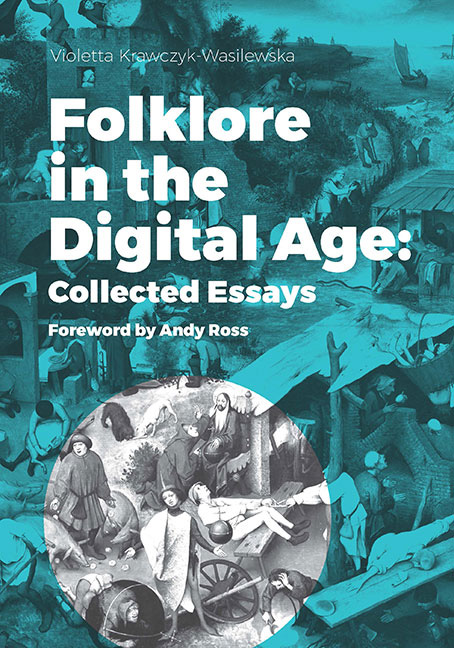Book contents
- Frontmatter
- Contents
- Acknowledgements
- Foreword
- I The Art of Bruegel and the Folklorist
- II e-Folklore as a Part of Digital Culture
- III Towards a Digital Folklore Heritage
- IV Post September 11: Global Fear vs Digital Humour
- V The Haiti Legends Revisited and the Power of e-Rumour
- VI The Global Dating Phenomenon
- VII Matchmaking through Avatars: Social Aspects of Online Dating
- VIII The Global Food Story and the Internet
- Bibliography
- Miscellaneous Endmatter
VII - Matchmaking through Avatars: Social Aspects of Online Dating
Published online by Cambridge University Press: 22 December 2017
- Frontmatter
- Contents
- Acknowledgements
- Foreword
- I The Art of Bruegel and the Folklorist
- II e-Folklore as a Part of Digital Culture
- III Towards a Digital Folklore Heritage
- IV Post September 11: Global Fear vs Digital Humour
- V The Haiti Legends Revisited and the Power of e-Rumour
- VI The Global Dating Phenomenon
- VII Matchmaking through Avatars: Social Aspects of Online Dating
- VIII The Global Food Story and the Internet
- Bibliography
- Miscellaneous Endmatter
Summary
The new world of digital devices and social media is extending our notions of personal identity. The effects reverberate through many areas of modern social life, through the labour market, education, trade, and global news, all the way to social, family, and personal life. Powerful online applications and attractive social media running on the new devices are encouraging people to move into a new space, known as virtual space or cyberspace.
In that new space, a person can deliberately remould or recreate his or her identity as a screen presence expressing an online personality, which is often pseudonymous following a widespread custom of using a new and invented name. In Internet jargon, the pseudonym is a ‘nickname’ or a ‘handle’ and is accompanied by a freely chosen graphic image to represent the person. People who live in different virtual communities often develop a plural identity arising from the sum of the various repertoires of their online roles.
Post-modern humans often use the new media to overcome the boundaries or limits of their physical embodiment and their given social position, as well as the constraints of their “tribal” or inherited traditions. Here is important to recall that for many centuries a conservative notion of identity was connected with the group identity, whereby a person who tried to live as an outsider faced a cruel vita nuda and social exclusion.
Today people can transform some of the attributes of social stigmatisation into positive manifestations of their private “self”and individual identity. With the increasing salience of online life, the notion of privacy is slowly disappearing, and multiplying identities of a Protean type are growing up. In real or physical life, the post-modern homo irretitus (web-entangled man) spends many hours a day in front of a computer screen.
This lonely life is eased by communication with similar online addicts on social networking sites, by digital forms of entertainment such as television, music, and movies, and by addictive computer games. Such individuals will occasionally change their name and identity in order to feel free and anonymous. The changed identity is often accompanied by a graphical image. In the world of online social media and games, the image takes the form of a freely chosen and stylised graphic called an avatar.
- Type
- Chapter
- Information
- Folklore in the Digital Age: Collected Essays , pp. 101 - 116Publisher: Jagiellonian University PressPrint publication year: 2016



